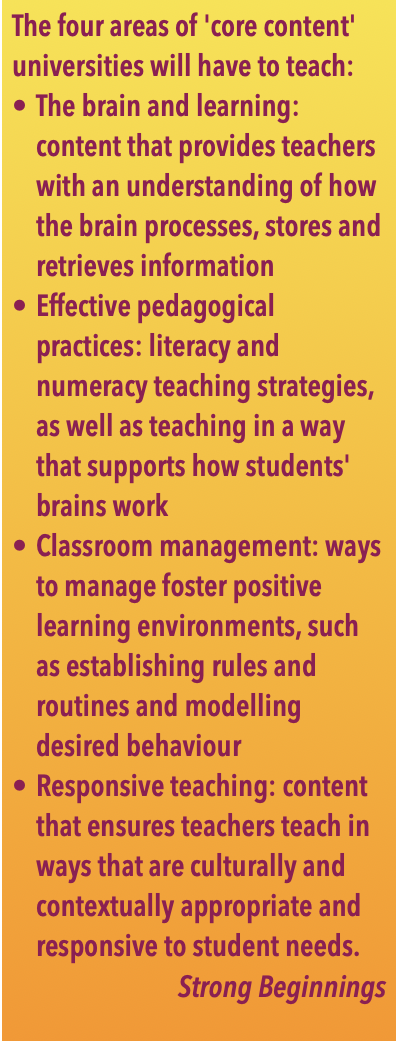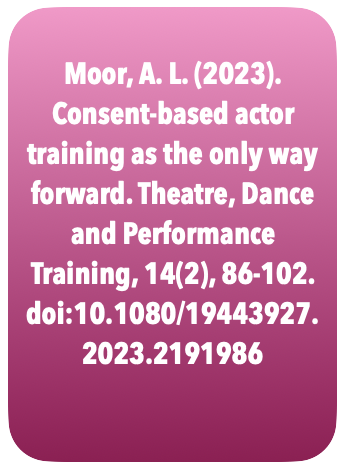Drama Tuesday - Taking Risks! Playing Safe?
/When did teachers – English teachers, drama teachers, all teachers – lose their nerve?
Mediating on the content of what we teach in drama (and English)
I am prompted to ask this question following a conversation with a very experienced English teacher friend about the recently published novel Honeybee, by Craig Silvey. We agreed that this was another thought-provoking narrative that is well-written and engaging. But, he went on to add: of course, I couldn’t use this in my school.
Of course, there are questions I want to ask him about Honeybee. Why?
But it is important to look beyond this specific novel and to think about the broader narrowing of curriculum choice and the mood of self-censorship in our schools.
As a refugee from the “hippie 70’s” when there was a more revolutionary spirit shaking up schools and curriculum, I am more attuned to a more liberal and open-ended approach. So much of becoming a teacher in that period was about breaking free of the shackles of a limited vision for education. Curriculum opened up. Teaching practice changed to be more inclusive and more focused on dialogue and giving voice and agency to students. The world of education became more liberal and free flowing. But I recognise how the times have changed. As recent international events in the USA have shown, words like liberal are terms of abuse and contempt.
There has been a long term campaign of inculcating fear amongst teachers.
The tabloid media rant about corrupting young minds urged on by the rising tide of religious extremism. The swings and roundabouts of time set off cycles of action and reaction (and as drama educators, we should know about action and reaction!). But, what are the forces that give hegemony to particular views at any moment?
It goes without saying that I am more likely to think more openly about the content of the plays and novels that we use in schools. Or perhaps, I am less likely to nervously twitch about content. What we can see and hear on television and film is now so much more liberated from other times. In case teachers have not noticed - what our children watch and see and hear on Netflix and in rap songs and online, is no longer as safe and as sanitised as some like to believe.
But I do wonder about the accepted curriculum itself. Look closely at the given cannon of texts. (For an interesting historical perspective on the curriculum cannon in english teaching see, Yiannakis, 2014).
Think about some of the topics of the accepted cannon.
Romeo and Juliet is about illicit infatuation and coupling in a climate of inter-family warring that results in teen suicide.
Othello involves extremes of jealousy and interpersonal rivalry and inter-racial marriage resulting in death and despair.
Equus by Peter Schaefer focuses on the disfigurement of horses by a psychotic ally disturbed adolescent.
Lord of the Flies – I have always been amused that Lord of the Flies is a much used school text (maybe less so now) that has not a single swear word but look at the undertow of its themes: the descent into savagery, the undercurrent of sexuality, the violence. Not forgetting the biblical references to the Beast and the pig.
And I could go on listing texts on required or recommended reading lists that handle difficult and challenging subjects. It seems that we teach some texts without batting a proverbial eyelid, but balk at others.
Drama – and literature – spring from human experience.
Therefore, we should expect that a broad range of experiences are included – and that we can imaginatively and emotionally enter into these worlds through vicarious experiences. I do not have to be a serial killer to play the role of one in the safety of the fiction we create in drama (not that I’m advocating that we make all drama lessons about becoming serial killers).
The role of drama and literature is to transport us into worlds that we might not know and through the imaginative experience to better understand and come to know the wider world.
What is going on at this moment in time? Are the uncertainties of the Pandemic situation surfacing? Is there a sense of fear and a desperate need for reassuringly safe teaching?
What do you think?
What particular topics and subjects triggers the curriculum twitchers?
Is it sex and sexuality?
Is it language? (That horse has long bolted!)
Is it themes such as witchcraft? Satanism? Or similar taboos?
Or is it the undermining of status quo stereotypes or apple pie and wholesomeness?
Is any topic suitable for teaching?
There is a misplaced nostalgia (if that is the right word for it) for a world that is safe, unthreatening, not complex and frightening. But not all school literature can be a sanitised and hygienic safety net.
Is this a time for bravery? A time for finding our risk taking mojo?
It will take courage.
Bibliography
Yiannakis, J. (2014). A possible literary canon in upper school English literature in various Australian states, 1945-2005. Issues in Educational Research, 24(1), 98.







